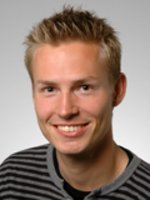
This project investigates group decision-making processes, social foraging and emergent search patterns of a highly social model toothed whale species, the long-finned pilot whale. These large, deep-diving delphinids live in matrilineal social groups that are stable across decades and like many other social animals, they coordinate a wide variety of behaviors within their social group. Such coordination often requires that animals with different degrees of intrinsic information and differences in motivation come to a shared decision for the entire group. This project aims to investigate individual and collective decision rules during travel and foraging periods using data from acoustic and movement tags deployed simultaneously on closely associated, free-moving individuals combined with models of collective behavior. I will seek to answer the following questions: a) how do heterogeneous groups of toothed whales coordinate movement and reach consensus decisions? b) are specific individuals within social groups important for shaping collective decisions such as the location or timing of foraging? c) how does social information that is available to individuals during coordinated foraging, such as the echolocation or prey capture signals of nearby conspecifics, affect individual search behavior, resulting prey encounter rates, and shape emergent foraging patterns? d) do acoustic signals contain information on the individual identity of whales that can be used to inform decisions of other group members during potential conflicts-of-interests, and provide a mechanistic basis for improving decision accuracy?
Project title:
Movement coordination, leadership and collective foraging in matrilineal toothed whales
Area of research:
Behavioral ecology and bioacoustics
Fellowship period:
1 Feb 2016 – 31 Jul 2018
Fellowship type:
AIAS-COFUND Marie Skłodowska-Curie fellow

This fellowship has received funding from the European Union’s Seventh Framework Programme for research, technological development and demonstration under the Marie Skłodowska-Curie grant agreement No 609033 and The Aarhus University Research Foundation.
